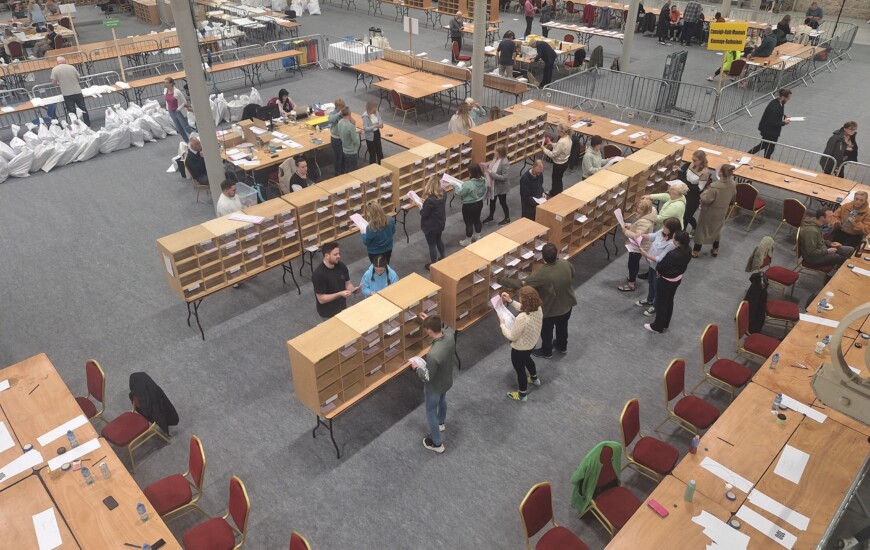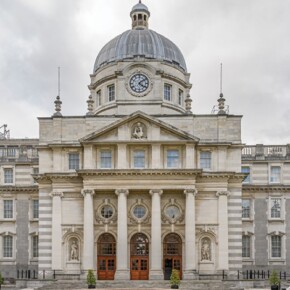How transfers shook up Southside races
Mike Finnerty 04 Sep 2024
When someone thinks of the word “transfers” they may think of Chelsea owner Todd Boehly and his quest to sign every player in world football, but in an Irish political context transfers also give us a little hint of what exactly is on voters’ minds.
The start of June saw all of Ireland take a trip to the polls and with rumours of a winter general election not going away, it seems pertinent to examine how transfers had an effect on local election races in Dublin.
For the purposes of this, we have zoomed in on two Southside constituencies; Ballyfermot-Drimnagh and Kimmage-Rathmines.
Both constituencies had the highest turnout of any southside constituencies within Dublin City Council jurisdiction.
Ballyfermot-Drimnagh had Kimmage-Rathmines beat by 0.10% in terms of turnout (39.63% versus 39.53%) which will make Christmas dinner awkward this year.
In Ballyfermot-Drimnagh, Sinn Féin’s Daithí Doolan topped the poll on 15%, veteran independent councillor Vincent Jackson won his 7th term onto Dublin City Council, People Before Profit’s Hazel de Nortúin secured re-election heading into a general election campaign, Phillip Sutcliffe won a seat for the newly-formed Independent Ireland and Ray Cunningham held onto his seat for the Greens.
A quite disparate spread, one might say.
Doing our best Mulder and Scully impression, we sifted through reams of data and figured out who transferred to who, and the data threw up some interesting results.
For example – ever hear the one about the Irish Freedom Party candidate giving 32 votes to a People Before Profit candidate?
How about the Fine Gael candidate giving 39 preferences to a Right2Change candidate?
Doolan winning his race early on created a vacuum that the left did well to cover.
Sinn Féin’s second candidate in the seat, Mamy Zema Nkoy, could only attain 3.3% of first preferences but her 258 transfers were enough to get her colleague elected on count two.
Apart from Sinn Féin, each party ran a candidate apiece.
Not surprisingly, Fianna Fáil and Fine Gael saw a good amount of overlap.
Incumbent Lord Mayor of Dublin Daithí de Róiste losing his seat in June was one of the big upsets of the election, but the statistics prove that he simply lost too many first preferences compared to 2019 and the bleeding was too deep.
De Róiste attained 10.5% in 2019, which slid to 7.6% in 2024.
The bitter pill to swallow for Fianna Fáil is that 7.6% is usually enough to get a candidate elected in a five-seater (indeed, Sutcliffe won a seat for Independent Ireland despite scoring 6.7% of first preferences) but luck simply abandoned de Róiste when he needed it most.
Not surprisingly, Sinn Féin voters weren’t in a rush to transfer to Fianna Fáil, while Soc Dem and fans of independent candidate Richard Murray also weren’t generous with their transfers.
De Róiste received four preferences from Doolan’s voters, 17 from Mogney of the Soc Dems and 39 from Murray.
By contrast, Sutcliffe received 76 transfers from Murray, and as it later transpires, 292 votes from Barry Ward of the Irish Freedom Party and 323 votes from independent candidate Dolores Webster to win a seat.
Indeed, De Róiste’s biggest lift from transfers came after Fine Gael’s candidate Paddy Dingle was eliminated on count five, with 177 of his 612 votes going to him.
Labour’s vote dropping from 8.7% to 4.5% is also worth examining.
Labour failed to win a seat here in 2019 but if they got anywhere around the 2019 figure it would have been enough for a seat; instead, the vote dropped by over half.
This can be attributed to the presence of the Social Democrats on the ballot; the aforementioned Mongey picked up 4.3% of first preferences.
With the two parties not exactly making a secret of the fact they are competing for the same voters, it simply seems like a case of the two parties cancelling each other out with De Nortuín of People Before Profit able to harness transfers more effectively.
When Mongey was eliminated on count three, she put 552 votes up for grabs.
142 of those went towards Ray Cunningham of the Greens, 124 of those went to De Nortúin and 95 went to Labour’s candidate Patrick Dempsey.
Dempsey himself was eliminated on count seven scattering 770 votes to the wind; of that 770, 250 of those went towards Cunningham, 132 went to De Nortúin and 98 went to de Róiste.
Sutcliffe secured a seat for Independent Ireland on Dublin City Council, and he has voters of independent candidate Dolores Webster and Barry Ward of the Irish Freedom Party to thank.
Ward was eliminated after round six with 731 votes, and gifted 292 to Sutcliffe.
When Webster was eliminated on round eight with 1018 votes, 323 went to Sutcliffe.
We now move onto the Kimmage-Rathmines portion of the evening; drinks are available in the foyer while the orchestra tunes their instruments.
This six-seater saw victories for Carolyn Moore of the Greens, Punam Rane and Patrick Kinsella of Fine Gael, Fiona Connelly of Labour, Pat Dunne of Right2Change, and Eoin Hayes of the Social Democrats.
In terms of raw first preferences, Kinsella was elected with 9.28% while the poll-topper, Moore, secured 12.21%.
Sinn Féin ran two candidates here – Jacinta Deignan and Ciarán Ó Meachair – and received 9.48% between them.
Had Sinn Féin run just one candidate, it would have been enough to win a seat; a rare instance of vote splitting within Ireland’s proportional voting system.
Instead, Sinn Féin not proving that appealing to voters in Kimmage-Rathmines allowed parties to their left to slip in ahead of them.
Eoin Hayes’ victory for the Soc Dems in Kimmage-Rathmines was proof that the more socially progressive part of the electorate was turned off by Sinn Féin’s stance on the likes of immigration, climate change and Gaza and went towards parties like the Soc Dems, People Before Profit and Right2Change.
Keeping on a PBP tact, their candidate Shay L’Estrange lasted four rounds and put 758 votes into play.
Hayes received 197 of those votes, Dunne received 177, while Deignan received 109.
Phillip Sutcliffe also ran in this constituency for Independent Ireland, placing above L’Estrange and Ó Meachair, but only lasted six rounds here.
When his 1357 votes were distributed, 396 went towards Dunne and Deignan received 113.
639 of Sutcliffe’s votes didn’t transfer, which points to Sutcliffe receiving a large personal vote and his voters simply showing up to vote for him.
Kimmage-Rathmines was notable as only one candidate reached the quota of 2,372, leading to an unusual situation where five of the elected candidates did well individually but none of them were quite able to reach the quota.
Pat Dunne was the only candidate to reach the quota ending up on 2,627 votes, well above the 2,372 needed.
The five other candidates won by simple virtue of being the last candidates standing.
Count nine, which saw Michael Connolly of Fianna Fáil distribute his 1455 votes, was the singular kingmaker in the race.
Kinsella of Fine Gael received 453 votes, his running mate Rane received 214, and Connelly received 206.
With a general election hotly tipped for this side of Christmas, drilling down into these Southside results gives us plenty to work with.
As Jerry Springer would say in his final thoughts segment at the end of his show, these local election results are clear signs of voters drawing their own personal red lines ahead of a general election.
In recent weeks, People Before Profit TD Paul Murphy has called on Sinn Féin, Social Democrats and left-wing independents to form a leftist alliance similar to what was seen in France.
While Sinn Féin has not responded to his calls as they were busy washing their hair and muttering something about New Labour, there may be some wisdom in PBP and the Soc Dems formally teaming up for a voting pact.
Both Northside and Southside, PBP and the Soc Dems enjoy healthy amounts of overlap on the transfer front, and as we saw in Kimmage-Rathmines it was the difference between a Fianna Fáil councillor getting elected onto Dublin City Council and a Social Democrats candidate winning.











